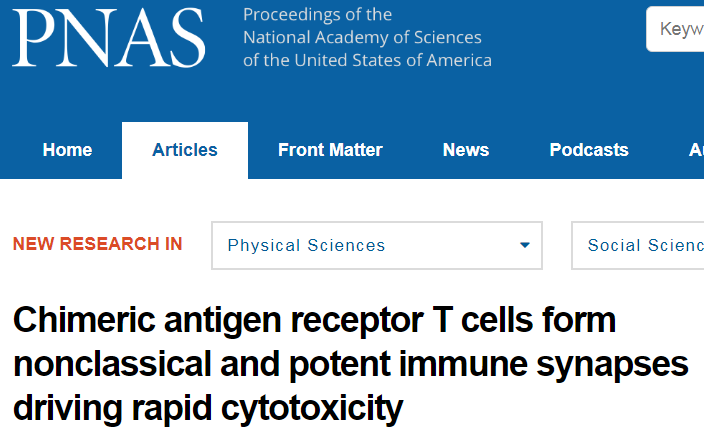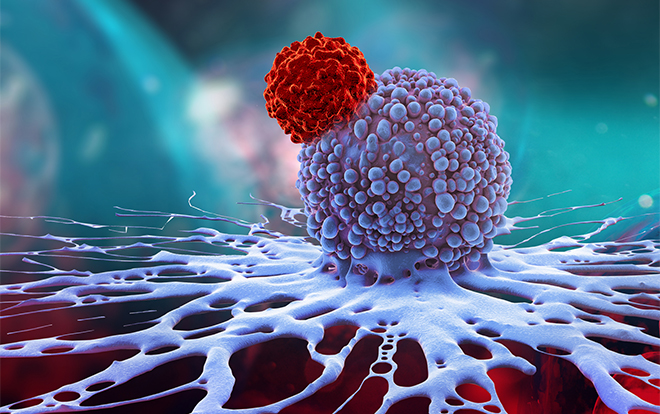Bringing CAR-T therapy to solid tumors, scientists discover key mechanisms | PNAS
Release date: 2018-02-22

Image source: PNAS (DOI: https://doi.org/10.1073/pnas.1716266115)
CAR-T therapy is an innovative immunotherapy that uses "modified T cells from patients to awaken the anticancer effects of the immune system." In 2017, the US FDA has approved two such treatments for the treatment of childhood leukemia and certain lymphomas. However, in the treatment of solid tumors, CAR-T therapy is “not very satisfactory†and often leads to serious side effects such as cytokine storms – a potentially lethal inflammatory response that may cause organ failure in some patients. .

A new study led by Dr Misty Jenkins and colleagues at Peter Mac could lead to safer immunotherapies for solid cancers.
In this paper entitled "Chimeric antigen receptor T cells form nonclassical and potent immune synapses driving rapid cytotoxicity", the team led by Dr. Misty Jenkins of the Walter and Eliza Hall Medical Institute revealed for the first time how CAR-T cells interact with cancer. Cells interact.
The scientists found that the chimeric antigen receptor (CAR) immune synaptic structure is different from the T cell receptor (TCR) synapse. Compared to TCR, CAR immune synapses form an unorganized pattern of Lck that allows for the rapid recruitment of lytic granules. This different CAR immune synapse is associated with faster killing of tumor target cells and CAR-T cells, as well as separation of dead tumor cells.
The authors believe that these findings provide a mechanism by which CAR-T cells can effectively reduce the patient's enormous tumor burden. At the same time, the study also laid the foundation for optimizing the design of receptors and improving the treatment of CAR-T therapy for solid tumors.

Image source: Network
It is reported that Dr. Jenkins' research team focuses on how to treat brain cancer with CAR-T therapy. She said: "Brain tumors are usually resistant to traditional therapies such as chemotherapy, and surgical removal of tumors can cause many collateral damage. Although for CAR-T cells, the brain is a very delicate and challenging The environment, but if you can use this type of immunotherapy to treat brain tumors, you can achieve tumor cell killing through limited invasion, and bring with little inflammation and side effects, which will significantly improve the treatment of brain cancer."
Reference materials:
Cancer killing clue could lead to safer and more powerful immunotherapies
Chimeric antigen receptor T cells form nonclassical and potent immune synapses driving rapid cytotoxicity
Source: Bio-Exploration
Anesthesia Medical Co., Ltd. , https://www.honestymed.com
